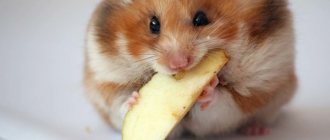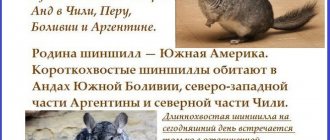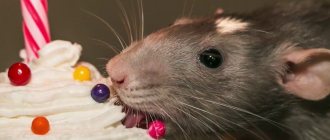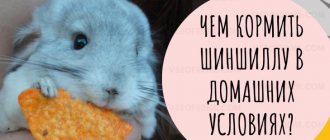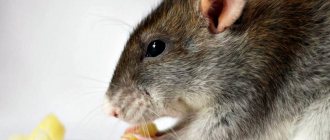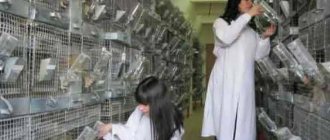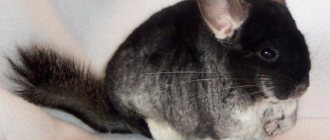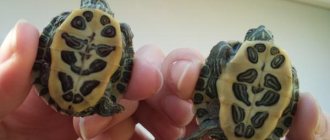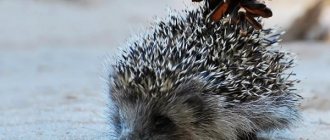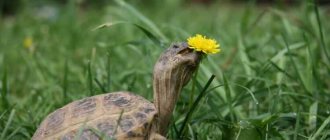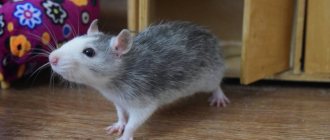The exotic rodent chinchilla is a popular pet with a pretty appearance and excellent health. With proper nutrition and care, a chinchilla can live up to 20 years. It is very important to choose the right diet for your pet. Poor-quality feeding disrupts the functioning of the reproductive and digestive systems and can cause premature death of the rodent.
In the article we will look at feeding chinchillas at home, what can and cannot be given to the animal, the features of the diet and which food is better to choose.
Rules for feeding pet chinchillas
The chinchilla is a herbivorous rodent that eats food in small quantities, but quite often.
Basic feeding rules:
- There should always be a supply of healthy food in your pet's feeder.
- New foods are introduced into the diet with caution.
- Balanced and varied menu.
- Chinchillas are very active, so they need high-calorie food, which also keeps the rodent's beautiful fur healthy.
Nutrition and daily routine
Chinchillas are nocturnal. Activity appears closer to 18-20 pm. The owner must ensure that there is enough food in the pet's feeder to eat at night.
It is better to feed the rodent at the same time. He will quickly get used to the regime, which will have a positive effect on the digestion process.
Chinchillas have sharp teeth that grow throughout their lives. In order for the pet to have the opportunity to grind down its teeth if necessary, you need to put tree branches in the cage, with the exception of coniferous species with a high resin content. Preferred are apple, linden, birch and hazel.
In addition to wooden twigs, special toys, mineral and chalk stones are also used.
Composition and balance of the diet
The diet for a pet rodent is selected individually, taking into account the pet’s age, health status, taste preferences and physiological characteristics of the body.
The main composition of the diet for pet chinchillas:
- Rough feed - hay, branches of trees and shrubs.
- Grain mixtures for chinchillas.
- Treats – berries and nuts, dried fruits, vegetables.
The daily food intake for an adult pet is 55-65 g. A balanced diet involves feeding in the following ratio: 25 g of roughage, 25 g of grain mixture, up to 5 g of vegetables and the same amount of additional treats.
How to feed
The first feeding takes place no earlier than 6 pm. The owner can pour grain feed into the feeder. It is not necessary to calculate the portion. Chinchillas are not prone to gluttony and obesity, so they will eat exactly as much as their body needs.
There should always be fresh and clean hay in the cage. The bundle can be placed in a certain corner or in a special hay feeder. Make sure your chinchilla is never left without this tasty and healthy food.
Drinking regime
Clean drinking water should always be freely available to the rodent. It is better to use distilled or filtered water. You should not give chinchillas regular tap water. You can also give chinchillas a decoction of chamomile, rose hips, and currants without adding sugar.
Foods that can be given in limited quantities
Many breeders argue about the need or possibility of feeding these types of products to the animal. However, in small quantities they bring more benefits.
The first such product is nuts. Chinchillas simply love them. Nuts contain many useful microelements, vitamins, acids and amino acids. The danger is that nuts can cause allergies, diarrhea and provoke the development of obesity. However, once a week you can offer your pet a tasty treat - walnuts, almonds, peanuts or hazelnuts. The main thing is that there should only be one nut.
A lot of controversy arises about seeds. They contain a large amount of fatty acids, and those who are involved in breeding and exhibitions know what a positive effect the seeds have on the condition of the fur and the appearance of the animal. However, an excess of seeds in the diet can lead to obesity and problems with the stomach. Chinchillas can be given some pumpkin or watermelon, sunflower or flax seeds. It is very important to remember that the seeds must be fresh. Roasted pumpkin or sunflower seeds will cause constipation and poisoning.
Dried fruits are most often used as a treat. If you really want to treat your animal to a piece of raisins or dried apricots, give it no more than once a week and only in small quantities.
Any type of dried fruit has a number of very useful substances for humans, but they are not entirely suitable for chinchillas. Raisins are too sweet and can cause problems with your sugar levels. Most often, raisins are given to sick animals that refuse to eat or to a female who has just given birth. Prunes have a strong laxative effect and you can only give a small piece if you are constipated.
It is better not to give candied fruits and berries - animals eat them with great joy, but such products contain too much sugar and too few useful components. You can treat your pet with canned pineapples or papaya. However, it is better to avoid such experiments. The chinchilla's intestines are very delicate and no one can predict in advance about the reaction to a new type of treat.
Breeders also argue about the acceptability of feeding crackers. It is not recommended to give fresh bread to animals - it often leads to the formation of gases, but fresh crackers, especially from yeast-free bread, can be a good treat.
List of healthy foods for chinchillas
When creating a menu for a pet rodent, you need to take into account the body's daily need for proteins, carbohydrates and fats.
Percentage of useful components:
- Proteins – up to 20%. This component is responsible for cell regeneration and fur elasticity. Lactating and pregnant rodents need to be given protein food in increased quantities, as it is responsible for the process of formation of the young's organs and milk production.
- Carbohydrates – up to 30-35% of the daily feed. They normalize the functioning of the digestive system and promote the removal of toxins from the body.
- Fats – 4-5%. They promote proper development, improve the condition of fur, and are an important source of energy for rodents.
The chinchilla's body also needs:
- magnesium – stimulating the body’s defense reactions;
- potassium – normalizes water-salt balance;
- folic acid – improves intestinal function;
- iron – promotes proper transport of oxygen to tissues.
An exotic pet's diet should contain healthy and high-quality products.
What to feed chinchillas:
- fresh hay;
- tree branches - pear, apple, sea buckthorn, birch, willow, etc.;
- dried herbs - parsley, spinach, burdock, plantain, clover, lettuce, dandelion grass, etc.;
- tree leaves;
- grain mixtures - wheat, corn, buckwheat, oatmeal, pearl barley;
- legumes - peas, beans, beans;
- pieces of dried vegetables - carrots, zucchini, tomatoes, bell peppers;
- dried fruits - apples, pears, grapes, bananas, apricots, figs;
- dried berries - blueberries, wild strawberries, strawberries, rose hips;
- nuts - walnuts, hazelnuts, peanuts.
The diet of pregnant and lactating chinchillas must include dairy products: milk, kefir, natural yogurt, cottage cheese, yogurt.
Norms and rules of feeding
To organize a balanced diet for your fluffy, you must first familiarize yourself with the established norms and rules for feeding chinchillas. To organize proper nutrition, you must adhere to the following principles:
- Maintain the ratio between fats, proteins and carbohydrates. The approximate daily requirement for a chinchilla is as follows - 5:20:65, respectively.
- Always put enough food in the feeder. An adult chinchilla eats 30-35 g of food per day. But it is better to leave food in reserve in the cage, because the animal may get hungry, for example, after active games.
- Feed your pet once a day - in the evening. The chinchilla is a nocturnal animal. Therefore, there is no need to feed the rodent during the day; it will sleep through the feeding anyway. It is better to offer your fluffy fresh food at the peak of his activity - around 20-22 hours.
- When purchasing food, pay attention to the date of manufacture of the product. It is better to buy a composition that has at least 3 months left before its expiration date.
- Use only high-quality, thoroughly washed products when feeding naturally. Vegetables and fruits must be seasonal, ripe, free from rotten rot and mold. It is better to collect grass and twigs yourself, away from environmental pollutants.
- Be careful when introducing new foods into your pet's diet. Chinchillas have very sensitive digestion, so sudden introduction of new foods can, at best, lead to an upset stomach. At worst, it can lead to illness or even death of the animal. Therefore, for the first time, treats should be given in minimal portions - 1-2 g. In the absence of negative reactions from the gastrointestinal tract, the dosage can be gradually increased each time, bringing it to 5 g.
- Refrain from feeding your chinchilla sugary and high-calorie treats too often. Despite the temptation to pamper your fluffy more often with dried fruits, nuts and fruit sticks, it is better not to do this. Excessive consumption of high-calorie food will lead to obesity in your pet and, as a result, to a decrease in physical activity, loss of strength, apathy, and problems with the cardiovascular system.
Particular attention should be paid to feeding pregnant and lactating females. At these life stages, chinchilla girls need more energy. Therefore, their diet should be as varied as possible, including more fresh fruits and vegetables, and when feeding babies, nuts. It is recommended to increase the total daily dosage of food for chinchillas during pregnancy and after birth by 10%.
If the animal is sick or weakened, on the contrary, you should not forcefully try to feed it. It is better to carefully leave veterinarian-recommended products in the cage and leave your pet alone. When the chinchilla gets hungry, she will come to the feeder on her own.
What not to give to chinchillas
Chinchillas should not be fed food from their table, as well as various foods not intended for these animals. There is also a list of products prohibited for feeding exotic rodents.
What not to give to chinchillas:
- from grain crops - rye;
- juicy herbs, vegetables and fruits, because chinchillas may have indigestion;
- leaves of lily of the valley, buttercup, milkweed, field mustard, datura, marigold, fern, poisonous buttercup, larkspur and hemlock - these herbs are poisonous;
- branches - coniferous trees, chestnut, maple, cypress, white acacia, elderberry, plum, apricot, cherry;
- from fruits - citrus fruits, persimmons;
- vegetables – potatoes and fresh cabbage;
- pine nuts and almonds;
- apricot kernels;
- offal;
- meat, bones;
- any sweets (including dried fruits), honey;
- hard cheese;
- sausage and smoked meats;
- products of non-natural origin.
Prohibited Products
Persimmons are prohibited for feeding. This fruit, useful for humans, is rich in iodine, which is contraindicated for animals. In addition to iodine, persimmons contain a lot of sugar and astringents, which will lead to constipation.
It is not recommended to give chinchillas and beets.
The root vegetable is healthy, but has a laxative effect. In rare cases, small pieces of beets can be given for constipation. Any type of cabbage leads to severe gas formation. Chinchillas love to feast on tea rose petals - they taste pleasant and have an attractive aroma. If flowers are grown in your own garden, there is no danger, but it is better not to give store-bought ones. They contain a lot of pesticides and chemicals that can cause serious poisoning.
When preparing tree branches for the winter, it is worth remembering which species are dangerous and unsuitable for feeding. Branches of which trees cannot be harvested:
- Apricot,
- white acacia,
- Beech,
- Ash leaf maple,
- Common buckthorn
- Cedar,
- Chestnut,
- Branches of any citrus species,
- Cypress,
- Elderberries,
- Cherries,
- Cherries,
- Branches of any coniferous species,
- Holly,
- Hydrangeas,
- Juniper,
- Common maple
- Myrta,
- Oleander,
- Plums.
Oak bark and twigs can only be given to animals suffering from diarrhea. In healthy animals they cause severe constipation.
Branches of stone fruit trees (cherry, cherry, plum, and so on) are dangerous because they contain a dangerous cyanide compound, as a result of the breakdown of which hydrocyanic acid is formed in the chinchilla’s body. If you feed an animal with such twigs, you can get not only severe poisoning, but also the rapid death of your pet.
Prohibited products also include any type of honey, as well as store-bought cottage cheese and fermented milk products.
Not all breeders know that chinchillas should not be given leaves, stems and flowers of indoor plants. Most of them are poisonous to the animal and very often cause death.
It is also not recommended to give any food from a person's table. Everything that is normal and familiar, even useful for people, for a chinchilla becomes the cause of digestive problems, allergies, obesity and other serious diseases. The animal will never refuse tasty and aromatic food and can eat a piece of cake, cheese, meat or fish. However, such food is not normal and familiar to the stomach of a furry pet. And the possible consequences are very sad.
Types of feed
A chinchilla can be fed a variety of foods. Some of them are mandatory and form the bulk of the daily diet.
Roughage
Rough feed includes hay and tree branches. These animals' digestive system is designed in such a way that if there is no hay, they can die suddenly. You can purchase the finished product in the store. It is better to give preference to hay, which consists of forbs (timothy, dandelion, clover, vetch, etc.). Hay is also necessary for grinding down the back teeth - prepainters.
Some owners make hay themselves, but in this case you need to be extremely careful. Pathogenic microorganisms, dangerous fungi and mold can multiply in the harvested hay. This product should not be given to a pet rodent. This can cause severe poisoning, even death.
To destroy pathogenic microorganisms that may be present in the hay, it is necessary to use special products from veterinary pharmacies. After treatment with this composition, all hazardous elements are neutralized.
In addition to hay, the diet of a domestic chinchilla should always include branches of bushes and trees. With their help, the pet regularly sharpens its teeth (incisors).
Herbs and plants
Herbs and plants are useful supplements of plant origin that should be given to your pet in limited quantities. The daily norm is up to 5-10 g.
Ready mixes
In the store you can buy ready-made mixtures for feeding pet chinchillas. High-quality food contains all the necessary vitamins and mineral complexes necessary for the healthy growth and development of your pet.
The composition of ready-made mixtures includes different components: grains, cereals, seeds, bran, etc.
Cereals
Grain mixtures form an important part of the daily diet of pet chinchillas. This product contains all the necessary vitamins, minerals, proteins, fats and other beneficial microelements.
It is not advisable to feed your pet one type of grain. Priority is given to feeding a mixture of different grains.
Vegetables and fruits
Juicy foods include fresh vegetables and fruits. These products are a real storehouse of useful vitamins and minerals. They are served to your pet as a treat in small pieces. Fruits and vegetables can only be given to chinchillas in dried form.
After feeding a new product, the owner needs to monitor the condition of the rodent. If symptoms of intestinal upset are observed, it is better to exclude this product from the diet.
A chinchilla should not be fed spoiled, rotten, stale or unripe fruits and vegetables! Such feeding will lead to illness and death of the pet.
Vitamins and treats
The animal should receive the bulk of its vitamins from daily food. During cold weather, additional vitamin supplements should be introduced into the diet. You can buy them in the store.
You can diversify your rodent's menu with various delicacies - berries, nuts, fresh and dried fruits. It is better to alternate such products and be sure to dose them. Each complementary food is given in strictly limited portions. Overeating on treats can cause serious harm to your health.
What foods should chinchillas not eat?
To avoid mistakes in planning your pet’s diet, be sure to study the list of foods that should not be fed to your chinchilla.
- meat;
- salted, smoked, spicy foods;
- prepared food for humans;
- eggs;
- dairy products;
- mushrooms;
- bread and pastries;
- pasta;
- sweets;
- potato;
- White cabbage;
- rye;
- roasted nuts and seeds;
- food for hamsters, mice, rats.
Despite the fact that chinchillas love some of the food on the list, feeding it is dangerous: the animal runs the risk of obesity, liver damage, or poisoning.
Peculiarities of chinchilla nutrition at different periods of life
When compiling a diet for a domestic chinchilla, it is necessary to take into account the physiological characteristics of the body, characteristic of different periods of the rodent’s life.
Pregnancy
A pregnant chinchilla requires special care and proper nutrition. The diet should be varied and balanced. During this period, the female’s appetite improves, so the daily food intake needs to be increased. The feeder should always have a supply of fresh and healthy food.
Additionally, you can include vitamin supplements intended for pregnant rodents in the main menu. Barley and sprouted oats are very useful for expectant mothers. They contain a large amount of vitamin E, which is necessary for the proper development of the fetus. If it is deficient, the pregnancy may be terminated.
2-3 weeks before giving birth, the chinchilla should be fed with pieces of dried apples. After the rodents are born, the herbs calendula, alfalfa and strawberries are introduced into the diet of the nursing mother. These herbs improve lactation.
Growth period
For small rodents, the basis of the diet is nutritious concentrated food low in fat and sugar. You can feed your growing pet ready-made granulated food from leading manufacturers. They contain a balanced amount of nutrients - vitamins, minerals, carbohydrates, proteins, fats and other components, selected taking into account the physiological characteristics of the young body.
Disease
For various reasons, a chinchilla can develop various diseases that worsen the pet’s general condition and its appetite. A veterinarian prescribes proper nutrition for a sick rodent, taking into account the disease itself and the characteristics of the body.
During illness, the chinchilla must be constantly fed with clean drinking water. If the rodent refuses to eat on its own, the owner can feed it paste-like food using a pipette. Additionally, vitamin and mineral complexes can be introduced into the diet. Detailed nutritional instructions for a sick rodent are issued by the attending veterinarian.
In our store you can buy balanced and healthy food for pet chinchillas. The assortment includes high quality products from the world's best manufacturers. Also available are cages, feeders, drinking bowls and other items for a comfortable and healthy life for an exotic pet.
Can chinchillas eat dried banana?
Although dried banana doesn't have the same water content as a regular banana, that doesn't mean you should feed it. If anything, it's worse.
The problem is that dried fruits are rarely real dried fruits. Instead, most dried fruits are candied fruits, and there is a big difference between them. Dried fruits are left to dry without adding or removing anything. While this is still not suitable for your chinchilla due to the sugar content, it is at least no worse than a regular banana.
How often can chinchillas eat bananas?
Likewise, we would recommend never giving a banana to a chinchilla. There's simply no need for them: they serve no nutritional value, while there are other snacks like rose hips and herbs that won't harm your chinchilla's health.
Again, if you insist on feeding banana anyway, at least feed it very infrequently: once a week should be your limit. Offer your chinchilla more suitable treats between feedings.
Source
In case of lack of nutritional mixture in pet products
It may happen that the necessary food is not available at the pet store, in which case there is no need to panic. Now we will describe step by step what can be given instead of food at home.
You should make a mixture of 20% oats, 10% buckwheat, 20% wheat groats, 10% barley grains, 55% maize, 8% flaxseeds, 7% peas or chickpeas, add nettle greens to this mixture. A special complex of vitamins, ground calcium and methonine should be added to the resulting consistency.
As a result, you get healthy and high-calorie food. But there is also a drawback to such a mixture: if in the store the food is granulated, then in the home, each grain is separated from each other and the pet can sort through the food.
How many bananas can a chinchilla eat?
We recommend not feeding your chinchilla bananas at all. This is because you take on the role of a parent if you adopt an animal with complex care needs; It's your job to take care of him, and you need to do it properly. There are many snacks that your chinchilla will enjoy just as much as a banana, but they meet his nutritional needs correctly, so we recommend feeding them instead.
If you are going to feed your chinchilla banana, you will need to strictly control the portion size you feed. What may seem like tiny differences in portion sizes to you are actually large for a chinchilla. So, feed only small portions, about the size of your pinky fingernail, if any at all.
